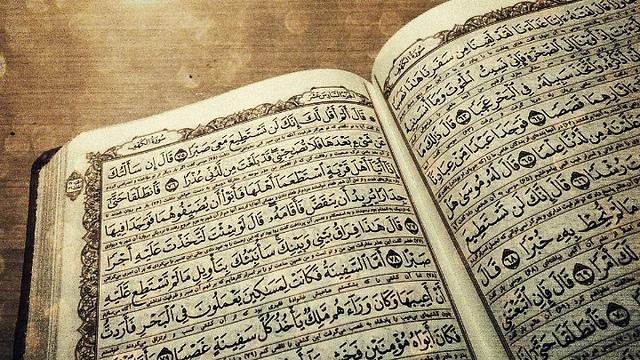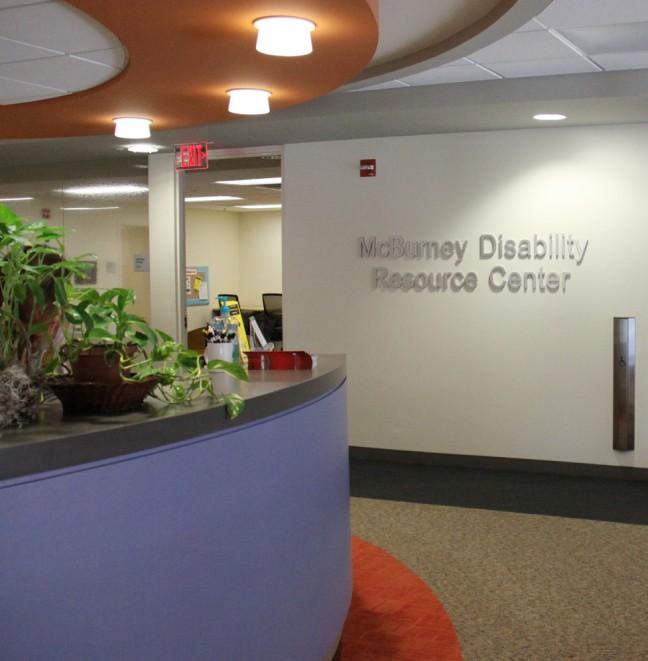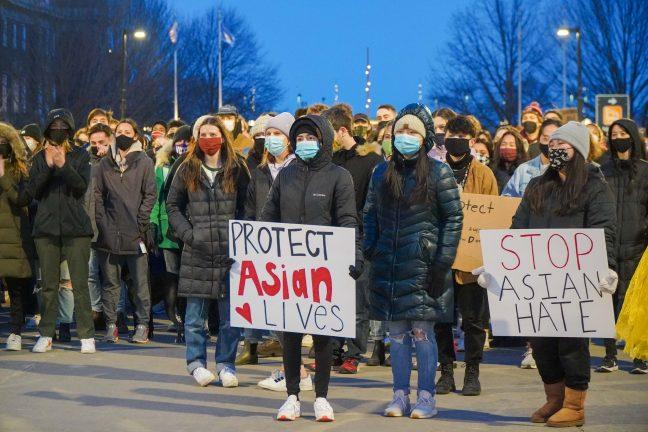Leviticus 20:13 explicitly demands that he who sleeps with another man is to be put to death. From this, am I to criticize Christianity for its violence as Kort Driessen, author of a Daily Cardinal article published about the evils of Islam, demanded we do of Islam? I think not.
Few doctrines are free of such statements ― those which demand the deaths of the religiously dissident. Islam is no exception. I wish to say explicitly, before moving further, that my argument is not to say, “These books say it, too. Where is the equality?” This only propagates pointless quarreling and deepens tensions. I only want to reconcile these statements with the fact religion is peaceful by showing how all religions can, and have, done so.
Religion is a personal, self-administered guide to life ― this is the very definition of Sharia. Unfortunately, this word has been transformed into something evil for those who, for whatever reason, want to believe Islam is a dangerous practice.
Like how Christians hold the view “Hate the sin, love the sinner,” Muslims, through scripture and teachings, are encouraged to love all lives. Even in times of war, Muslims are ordered to protect prisoners, escort them to safety and set them free where they can flourish again.
I am not going to lecture on commandments, nor say these points are enough to refute the accusations raised against Islam.
Driessen has insisted we criticize Islam but not its followers. This is absurd. Religion, like any belief or proposition, is just words without those to enact it. To say one can criticize an idea without criticizing those who execute this idea is nonsensical. I make this point not to make this conflict personal for Muslims and earn them a false sense of entitlement from attack, but rather to show the importance and inevitability of personal interpretation of faith.
The seeming contradictions in all religions regarding matters of violence simply prove a book alone teaches nothing. It may emphasize certain values but can never expressly and sufficiently compel one to act in certain contexts, lest they live an absurd life praying for forgiveness for following orders.
Islam might be taught as it is written, but this does not make a Muslim ― a Muslim is one who draws on the values of teaching and governs their own life from the virtues expressed. This is not to say there are none who believe themselves Muslims and kill nonbelievers.
ISIS and other evils that deny the personality of faith are a symptom of that. The majority of Muslims, including scholars, leaders and historical figures like the Prophet himself, as evidenced through his teachings, would agree that these individuals have Islam wrong.
Millions of Muslims have read the Qur’an and yet have not waged war on non-Muslims. How can this author reconcile this fact? I think they cannot, hence their contradictory claim we only criticize the religion and not its followers.
The truth of the matter is no religion can overpower the love one feels for their fellow beings. In fact, Islam encourages it. It is wretched experience that breeds violence, not words read in a book handed down from elders. One does with their faith what they will. Growing up in a Muslim family and community and spending time in Egypt, I know Muslims so dedicated they never enter the bathroom with the right foot forward and never enter any other room with the left (This is a small and old Islamic teaching most Muslims do not even know of).
This is their choice. Never have these people attacked others, even other Muslims who are more liberal, for breaking the moral codes they set for themselves, and never have they denied service to anyone ― even those they consider most sinful ― in need.
Religion serves as a guide for believers, but is not to be misconstrued as something that dictates or controls every single decision made by a person. The 21st century has helped all faiths draw less from violent passages and encourage an acceptance still fully in compliance with their scriptures.
Society is perhaps the greatest experience that guides people to develop their faith, and society is not religion but people. Intolerance of every aspect of a religion, as Driessen has expressed in his column, is more likely to incite violence in Muslims than the Qur’an and only empowers the issues it pretends to address.
Only when an idea is fully understood can it be called into judgement, and Driessen has shown a significant ignorance of the true nature of Islam and how its ideas come to fruition.
Adam El-Meanawy ([email protected]) is a sophomore majoring in biochemistry and philosophy.














